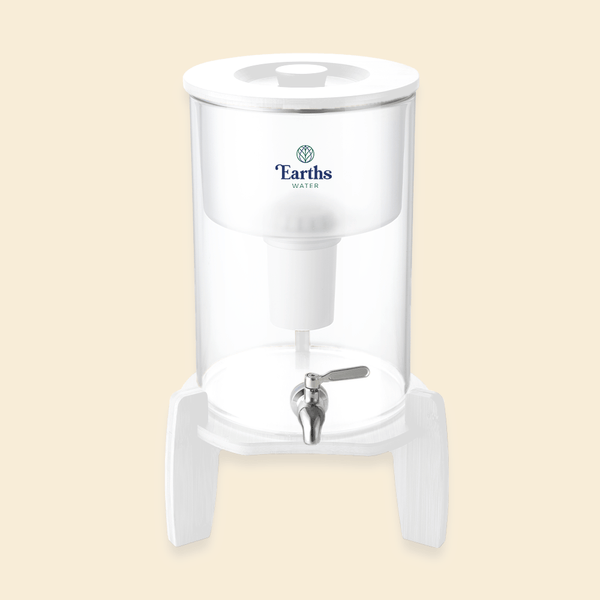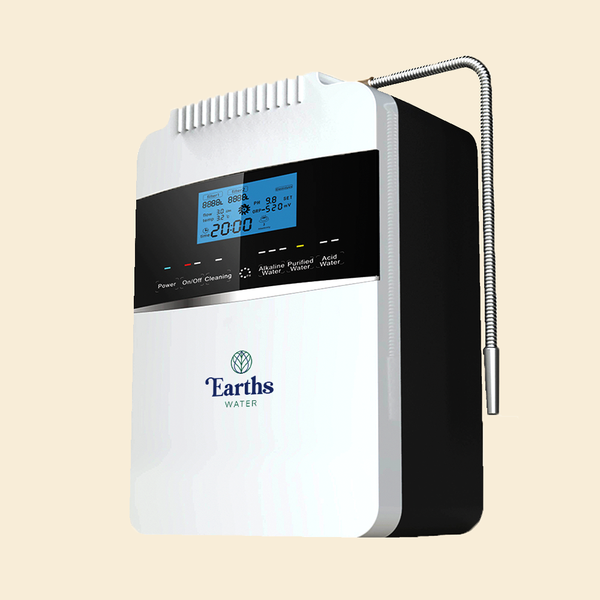
You trust that your tap water is safe, and for the most part, it is. Australia’s water treatment plants do a great job keeping things clean and up to standard.
But by the time it arrives in your home—especially if you live in an older house—it might have picked up a few unwelcome extras: rust, lead, microplastics, even chemical residues. If that thought makes you pause, you’re not alone. Many Aussies are discovering that contaminants in tap water aren’t just stories—they can come straight from our pipes.
Not exactly what you want in your glass, right?
Tap Water Starts Clean, So What’s the Problem?
In Australia, we’re lucky to have well-regulated and safe municipal water supplies. Water leaves treatment plants meeting all the health and safety standards. But the story doesn’t end there.
From the treatment centre, water travels through kilometres of public and private pipelines, some of it decades (or even a century) old. And that’s where things can get murky.

If your home has old pipes and soldering, or worn-out fittings, they might be introducing contaminants in tap water right at the last stop. That means even water that started out pure can arrive at your sink with some unwanted extras.
Contaminants Hiding in Your Pipes
Here are some of the common ones to keep an eye on:
Rust and Sediment
Older steel or galvanised iron pipes can corrode over time, especially in homes built before the 1960s. This corrosion releases tiny iron or rust particles into your water. It’s usually not dangerous, but it can give water an off taste, a brownish tinge, and even stain your laundry or appliances.
Lead
Lead used to be common in old plumbing solder, and even today, tiny traces can leach into water from brass fittings. The health risks of lead are well documented, especially for children. Even low levels of lead exposure can affect brain development and behaviour, according to the World Health Organization.
Microplastics
They’re everywhere: our oceans, the air, and yes, even our drinking water. Studies have found microplastics in Australian tap water, likely coming from plastic piping, fixtures, or broader environmental pollution. The long-term effects on human health aren’t fully known yet, but most of us would rather skip the plastic in our morning glass.
Biofilm Build-up
Inside old pipes, bacteria can build biofilms—slimy layers that may harbour pathogens like E. coli or Legionella. While water is chlorinated to kill these bugs, biofilms can sometimes offer shelter, allowing a few to slip through.
Signs Your Home’s Plumbing Might Be Adding Nasties

Not sure if your pipes are the problem? Here are a few red flags to watch out for:
-
Brown or orange water when you first turn the tap on
-
Metallic or musty tastes or smell
-
Visible flakes or cloudiness in water
-
Limescale build-up on taps and kettles
-
Your home was built before 1990 (especially if the pipes haven’t been updated)
What You Can Do Today
Here’s where things get practical. You don’t need to rip out all your plumbing to feel safer. A few simple steps can help:
Check Your Home’s Plumbing

When was it last updated? Old copper, lead solder, or brass fittings? It might be time for a plumber or a filter. Replace old taps or fittings labelled “do not drink” or with no lead-free certification. Opt for low-lead plumbing materials.
Flush Your Taps in the Morning
Let cold water run for at least 10 seconds to clear any water that’s been sitting in the pipes overnight.

Filter at the Final Stop
Adding a water filter gives you that “final checkpoint” right before your water reaches the glass, catching whatever the pipes might add in.
Why Filtering Water at Home Matters
While not every home will have dangerous levels of contaminants, the risks from ageing pipes aren’t something to ignore, especially when the fix is as easy as using a proper filter.
Filtering your water is a bit like putting on sunscreen. You might not need it every single day… but would you risk going without?
A good water filter—like Earths Water—can reduce or remove:
-
Sediment and rust particles
-
Heavy metals like lead and copper
-
Microplastics
-
Chlorine and its taste or smell
-
Organic compounds and chemical residues
In other words, it cleans up what your plumbing might be adding in.
A few more reasons why it’s worth thinking about:
-
Health: Long-term exposure to lead, even at low levels, can affect development, blood pressure, and kidney function.
-
Foul taste or odor: You’ll drink more water when it tastes and smells fresh and clean.
-
Appliances: Sediment and rust shorten lifespans of dishwasher, coffee maker, and kettle which become costly over time.
-
Savings: A good filter reduces bottled water purchases and waste.
Earths Water Filters for Your Peace of Mind
You don’t need to overhaul your entire plumbing system to drink water with confidence. At Earths Water, we design water filters that fit every Australian home—old, new, and everything in between.

Here are a few easy upgrades to protect your water from pipe-related nasties:
9L Eco Benchtop Water Filter
Perfect for households that want serious filtration minus the hassle of complicated plumbing. This simple yet powerful water filter removes chlorine, microplastics, heavy metals, and more while keeping the good minerals in.
Under Sink RO Water Filter
For those in hard water zones or areas with older infrastructure. This water filter, aside from having it conveniently hidden in plain sight, removes up to 99% of contaminants in tap water, including lead, rust, and fluoride.
3.5L Glass Carafe Water Filter
One of our customers’ favourites, this glass carafe filter is a stylish solution for renters and small homes. It instantly elevates your kitchen aesthetics and gives you clean, refreshing water with every pour.
Your Tap Water Deserves a Final Checkpoint

By the time water reaches your glass, it’s travelled a long road. Along the way, it can pick up little bits of plumbing history (all the nasties you don’t want lurking in your glass). While the water itself starts out clean, your pipes can be the wildcard.
If your plumbing is outdated, or if you simply want to drink and cook with more confidence, filtering water at home is one of the simplest and most effective things you can do. Because when it comes to your health (and your glass of water), you deserve better than “probably fine.”
Ready to take the guesswork out of what’s in your glass? Explore our full range of Earths Water filters for cleaner and safer water for you and your family.





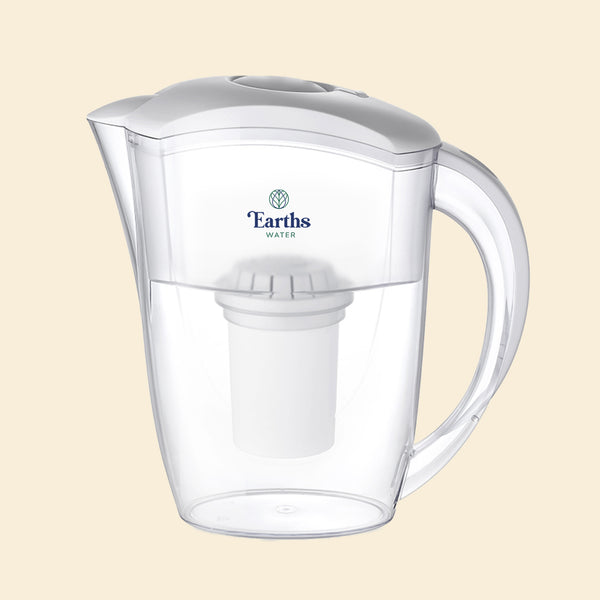
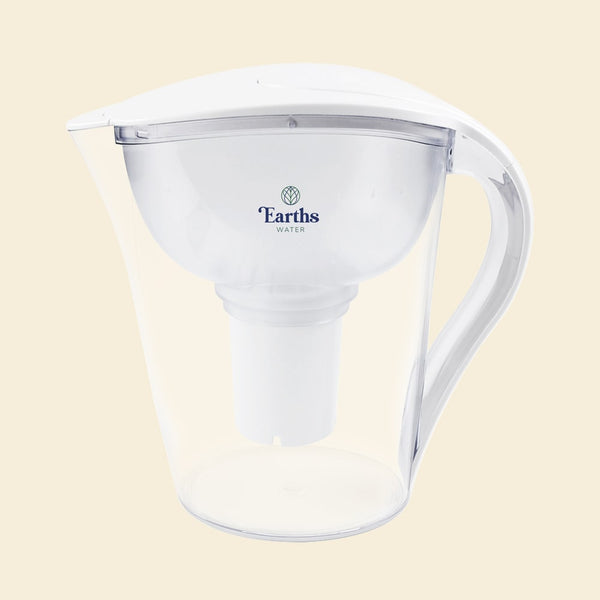
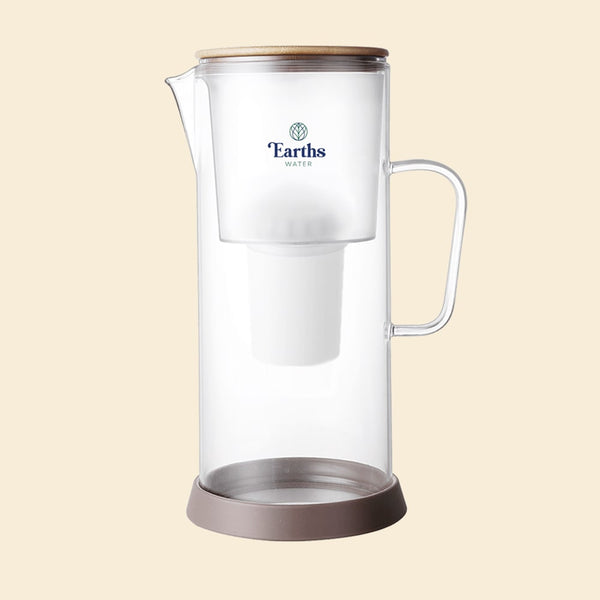
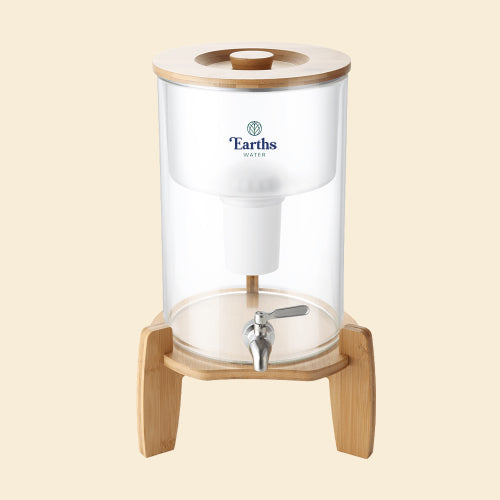
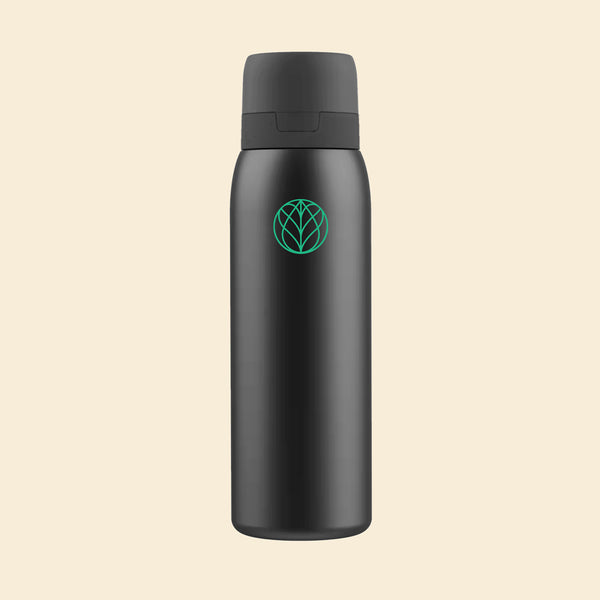
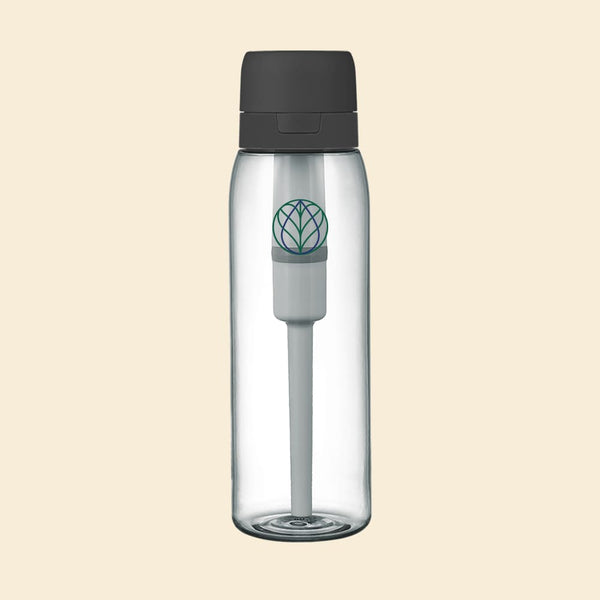
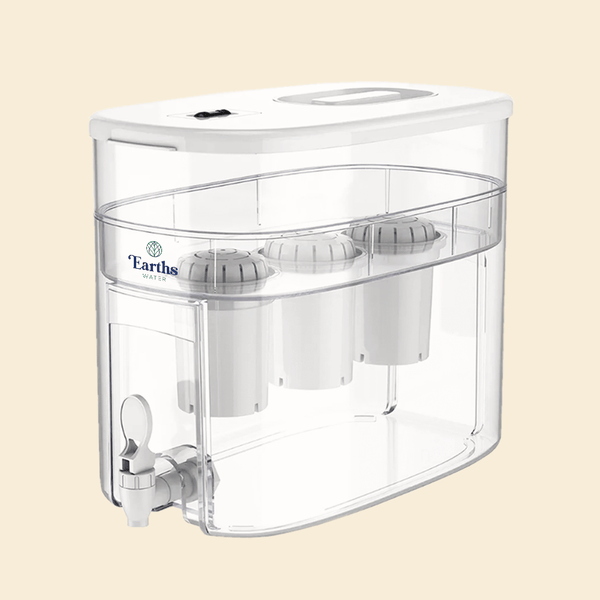
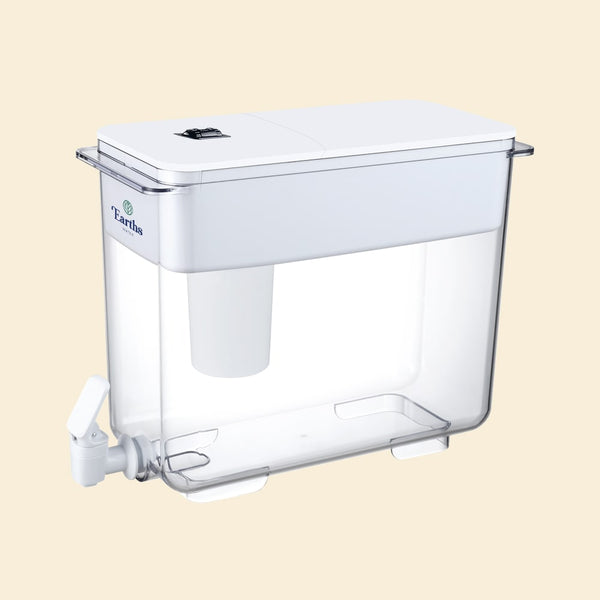
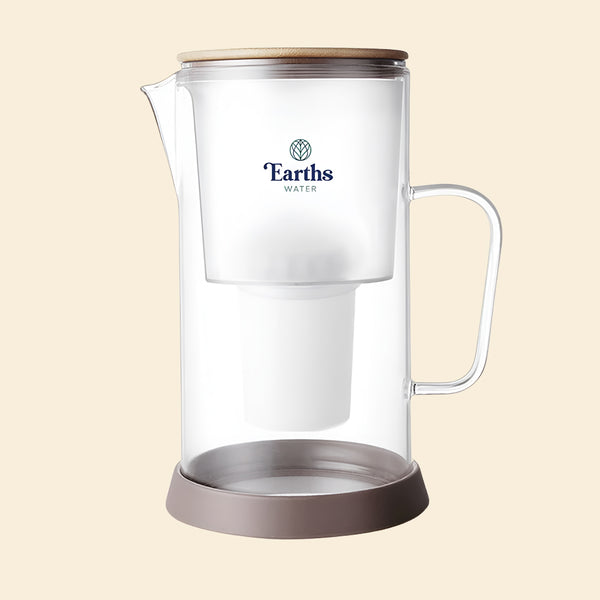
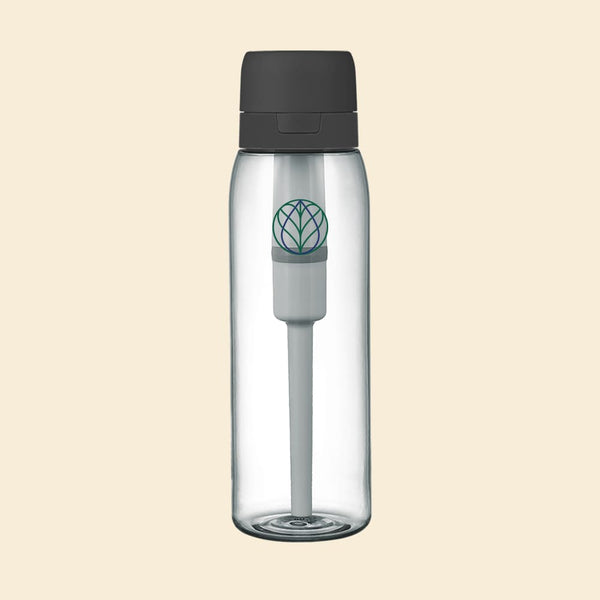
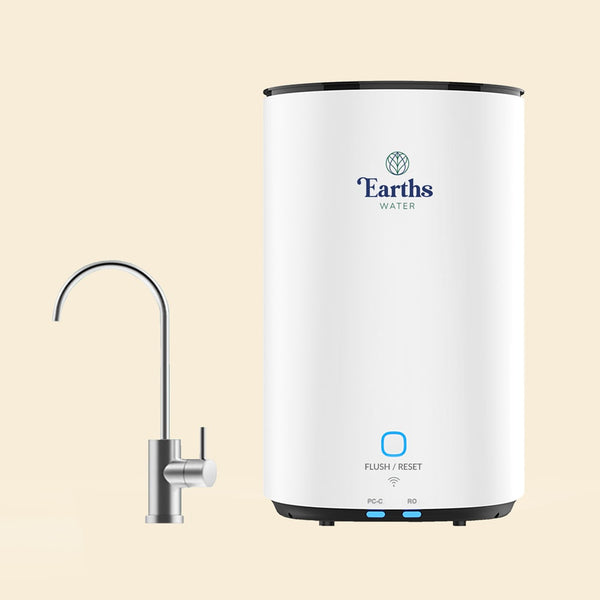
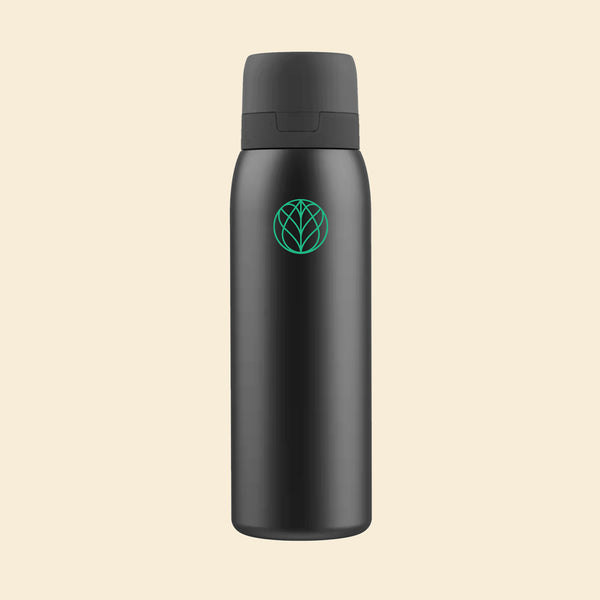
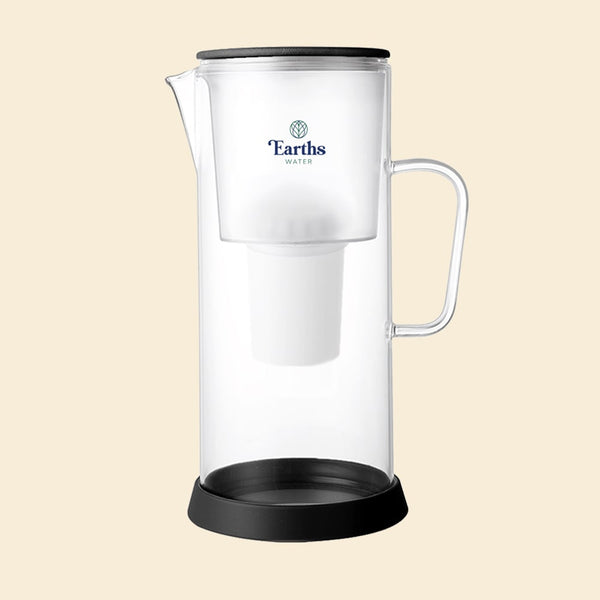
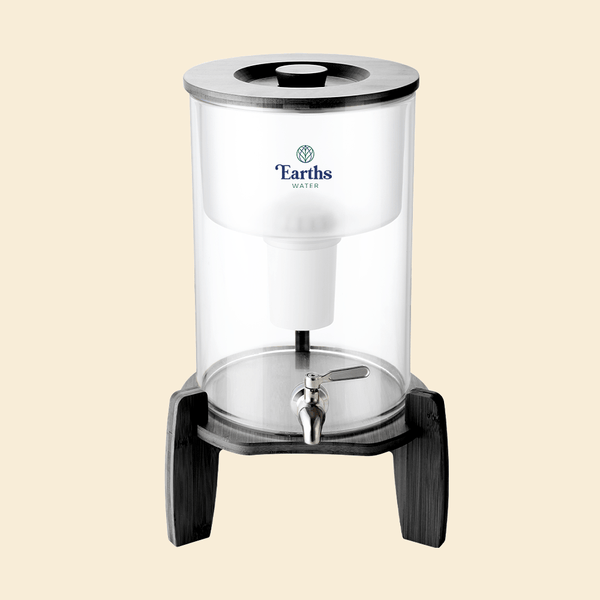
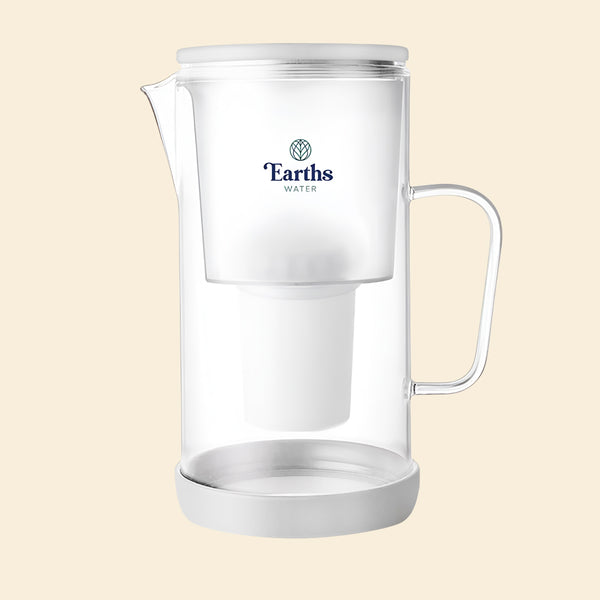
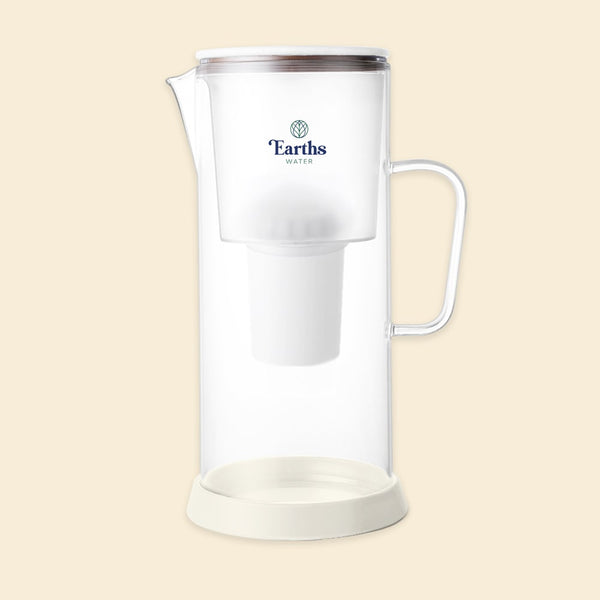
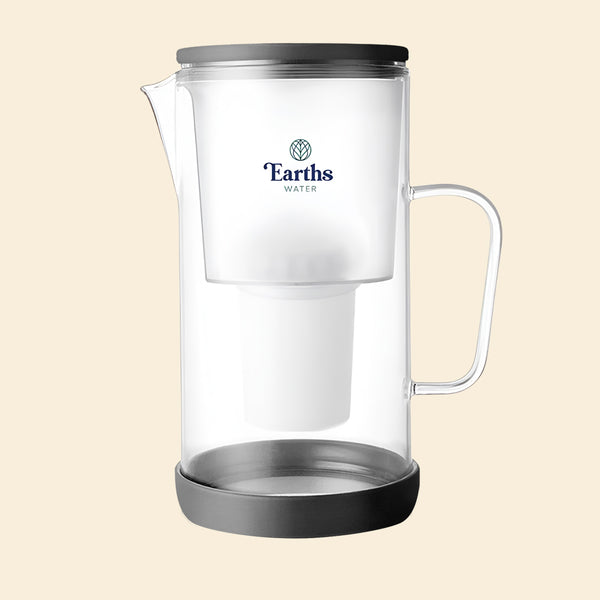
![9L Glass Benchtop Alkaline Water Filter - Eco Acacia [LIMITED EDITION]](http://earthswater.com/cdn/shop/files/ACACIA-BENCHTOP-FRONT-BEIGE_600x600.png?v=1743392740)
